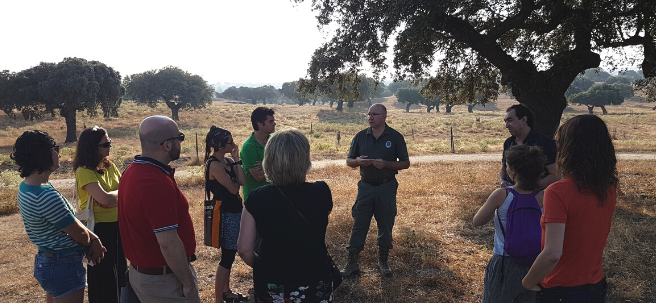
02 de June de 2020
Dinamización rural
Innovación
The RETA Operational Group has created the "Network of Agricultural Test Spaces," a tool that facilitates the incorporation of new stakeholders into rural areas and provides opportunities for entrepreneurs to access land. Technically speaking, these are spaces for experimenting with agricultural activities where entrepreneurs can test their business model in a safe environment and simulate what their future professional activity would be like.
- The RETA Operational Group creates the "Network of Agricultural Test Spaces" with the aim of facilitating the incorporation into the rural environment of people with or without previous experience
- Agricultural test areas are incipient in Spain, since until now agricultural incorporations have traditionally occurred from generation to generation.
 |  |
The purpose of agricultural test spaces is to facilitate generational change in agricultural, livestock, and forestry operations, attracting and establishing young people in rural areas.
These spaces allow entrepreneurs to test their projects before deciding whether or not to pursue them. This ensures a greater degree of success in their eventual incorporation into the rural sector.
In the words of Albert Puigvert, manager of Arca—the LEADER Local Action Groups association of Catalonia, which is part of RETA—“agricultural test sites are as diverse as the territories and activities.” In fact, Albert confirms the creation of four to five agricultural test sites in the province of Barcelona, in addition to another in Extremadura, linked to a cooperative that has set up its own shepherding school. In July, RETA will hold a digital seminar to thoroughly explain how the network of agricultural test sites works.
Global accessibility
What's truly remarkable is that it's an open, comprehensive, and democratic tool, free from bias based on prior ties to the rural environment. For someone outside the agricultural sector, the path to accessing the rural world is complex and requires specific support , especially in the phase between training and business creation.
Rural activity requires essential resources , including:
– Access to land.
– The initial investment.
– Technical training.
– Practical experience.
– Contact with agricultural agents or integration into rural areas.
New economic and social dynamics show how the profiles of those entering the agricultural sector are changing, and how people without a rural family tradition are becoming new agricultural agents. This new generation incorporates a renewed vision of the sector, highlighting important elements of innovation that strengthen its viability, both from an economic, social, and environmental perspective.
In this context, agricultural test spaces provide ongoing, personalized support for the gradual integration of new rural stakeholders, ensuring their professionalization while simultaneously evaluating the chosen agricultural business model.
Background
Agricultural test spaces are relatively new in Spain. Until now, there was no experience with them, as agricultural incorporations have largely been passed down from generation to generation. The only similar experiences linked to the process of incorporating new agents into the sector are shepherding schools , which provide ongoing and intensive training to equip livestock professionals, providing tools for innovation in the sector.
Agricultural test sites emerged in the United States in 1998 and were adapted to the European model in France in 2006. These latter were created to address the challenges posed by the incorporation of new players into the agricultural sector: profiles without direct family ties and with very specific needs during the establishment process. In France, the model was consolidated in 2012 with the creation of RENETA (Réseau National des Espaces-Test Agricoles).
The RETA Operational Group is promoting this social innovation project to address the needs of generational renewal in the agricultural sector, as well as to develop the previously nonexistent Network of Agricultural Test Spaces in Spain.









